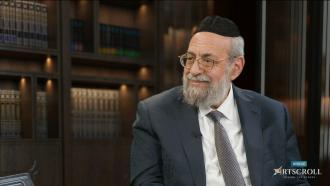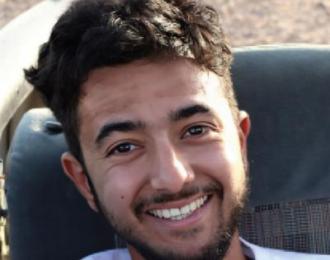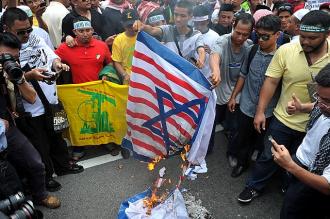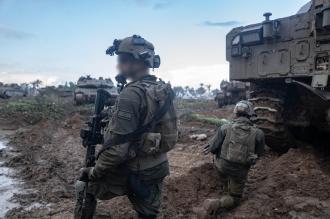MANILA, PHILIPPINES—Prime Minister Justin Trudeau condemned Monday the “cold-blooded murder” of a Canadian beheaded by terrorists in the Philippines after being held hostage for seven months.
Trudeau confirmed the victim was 68-year-old John Ridsdel of Calgary.
Ridsdel was one of four tourists, including Canadian Robert Hall, a Norwegian man and a Filipino woman, who were kidnapped last Sept. 21 by Abu Sayyaf militants from a marina on southern Samal Island.
The militants had threatened to kill one of the three male hostages if a large ransom was not paid by 3 p.m. Monday local time — 3 a.m. ET.
Trudeau said he was “outraged” by the news that a plastic bag containing Ridsdel’s decapitated head was dumped in a street Monday night by two men on a motorcycle in Jolo, a town in Sulu province.
“Canada condemns without reservation the brutality of the hostage-takers and this unnecessary death,” Trudeau said in a hastily assembled appearance before the media in the midst of a cabinet retreat.
“This was an act of cold-blooded murder and responsibility rests squarely with the terrorist group who took him hostage.”
Trudeau said the Canadian government is committed to working with the Philippine government and international partners to “pursue those responsible for this heinous act and bring them to justice.”
On behalf of all Canadians, he also expressed his “deepest condolences” to Ridsdel’s family and friends.
“They have endured a terrible ordeal and this is a devastating moment for all of them.”
Saying that the safety of Canadian citizens is the first priority of the government, Trudeau said the government will not comment or release any information that might “compromise ongoing efforts or endanger the safety of the remaining hostages.”
He did not answer any questions, including whether the government had paid a ransom for Ridsdel or Hall. However, an official said it is long-standing government policy to not pay ransom demands.
Interim Conservative leader Rona Ambrose called news of Ridsdel’s execution “shocking and saddening.”
“Incidents like this should remind all of us that the threat of terrorism remains very real,” she said in a statement.
“We must stand with our allies in solidarity against terrorism, which remains the greatest challenge that the world faces today.”
NDP Leader Tom Mulcair called on the Trudeau government to do everything possible to rescue the other hostages and declared that “we stand united in condemning this outrageous and despicable act.”
“Tragic events like this must not lessen our diplomatic resolve to work towards peace across the world,” Mulcair added in a statement.
In the Philippines, Jolo police chief Supt. Junpikar Sitin said two men on a motorcycle left the head, which was placed in a plastic bag, along a street in Jolo town in Sulu province and then fled.
Abu Sayyaf militants had threatened to behead one of three men — two Canadians and a Norwegian — they kidnapped last September from a marina on southern Samal Island if a large ransom was not paid by 3 p.m. Monday. It now is early Tuesday in the Philippines.
The hostages were believed to have been taken to Jolo Island in Sulu, a jungled province where the militants are thought to be holding a number of captives.
“RCMP has completed next-of-kin notification,” officials told the Star.
Ridsdel, a former Calgary journalist turned mining executive, was in semi-retirement when he was kidnapped. He had logged early years with the Calgary Herald and CBC before switching careers, had undergone extensive hostile environment training and a quarter-century of risk-related travels, including stints for Petro-Canada in Pakistan, Burma and Algeria.
“He was certainly aware that when you work in problems area, you could have some difficulty,” Ridsdel’s friend Sandy Hunter told the CBC.
Military officials said the Canadian and Norwegian embassies were notified of the discovery.
Jolo Mayor Hussin Amin condemned the beheading, blaming Abu Sayyaf militants, who have been implicated in past kidnappings, beheadings and bombings.
“This is such a barbaric act by these people and one would be tempted to think that they should also meet the same fate,” Amin said by telephone.
Philippine forces were moving to rescue the abductees, also including a Filipino woman who was kidnapped with them, as the Abu Sayyaf’s deadline for the ransom payment lapsed, the military said.
The militants reportedly demanded 300 million pesos ($6.5 million U.S.) for each of the foreigners, a reduction from their earlier demands.
The hostages were believed to have been taken to Jolo Island in Sulu, a jungled province where the militants are thought to be holding a number of captives, including 14 Indonesian and four Malaysian crewmen who were abducted at gunpoint from three tugboats starting last month.
“Maximum efforts are being exerted . . . to effect the rescue,” the military and police said in a joint statement, without divulging details of the rescue operation, which was ordered by President Benigno Aquino III.
About 400 Abu Sayyaf militants were involved in the kidnappings, it said.
In militant videos posted online, Canadians Ridsdel and Hall, Norwegian Kjartan Sekkingstad and Filipino Marites Flor were shown sitting in a clearing with heavily armed militants standing behind them. In some of the videos, a militant aimed a long knife on Ridsdel’s neck. Two black flags hung in the backdrop of lush foliage.
The abductions highlight the long-running security problems hounding the southern Philippines, a region with bountiful resources that also suffers from poverty, lawlessness and decades-long Muslim and communist insurgencies.
The Abu Sayyaf began a series of large-scale abductions after it emerged in the early 1990s as an offshoot of a separatist rebellion by minority Muslims in the predominantly Roman Catholic nation’s south.
It has been weakened by more than a decade of Philippine offensives but has endured largely as a result of large ransom and extortion earnings. The United States and the Philippines have both listed the group as a terrorist organization.

















